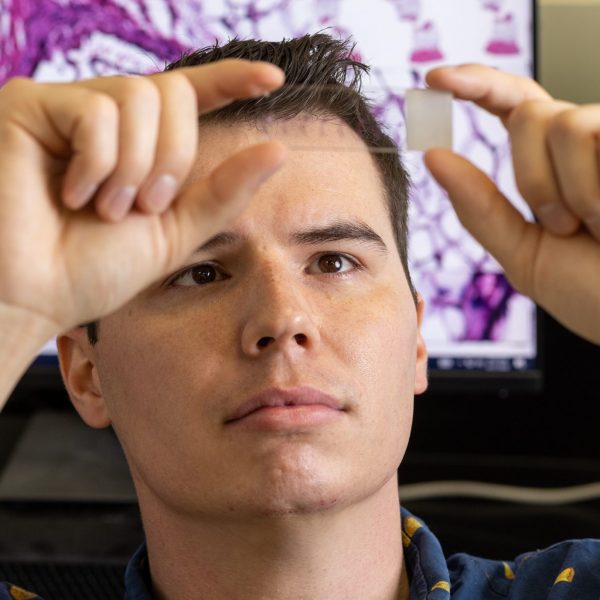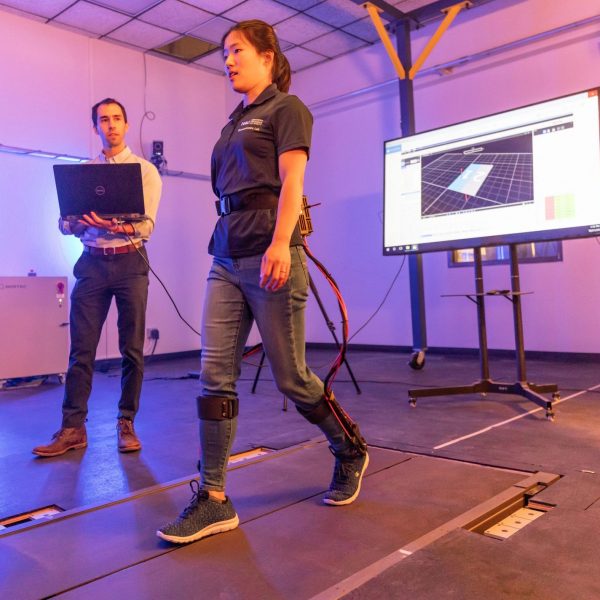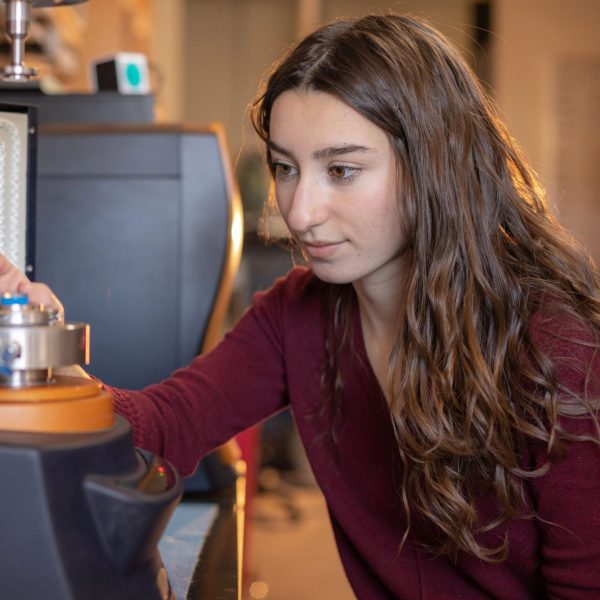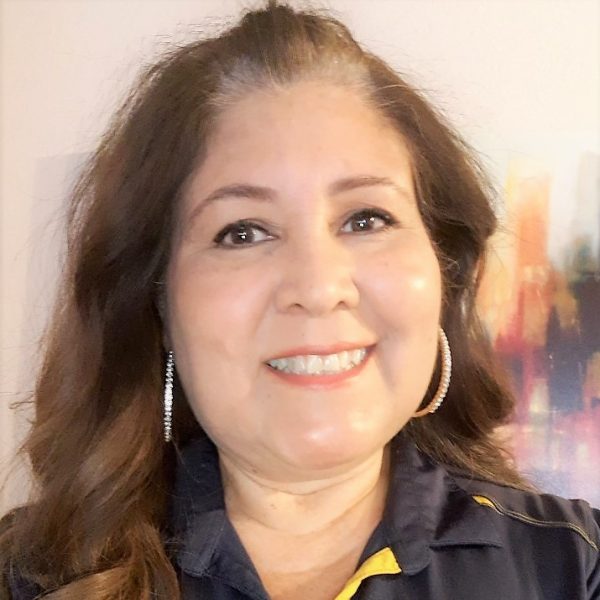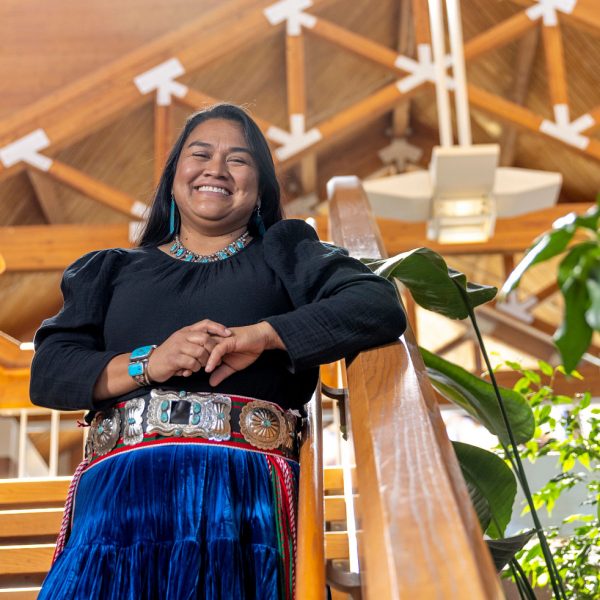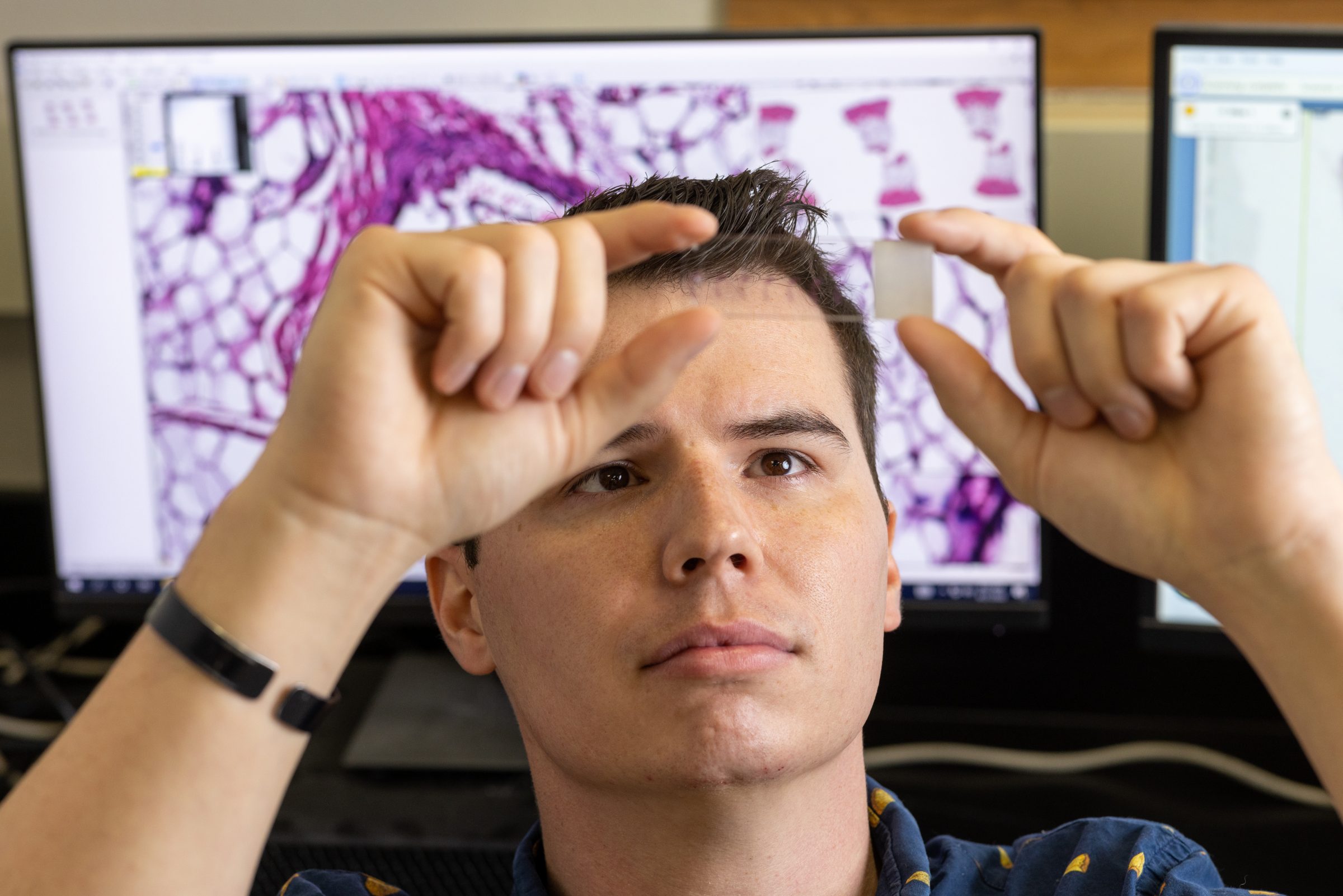
Ron Allen jokes that his road to NAU began with a Google search.
It was 2014, and he was getting ready to complete his service in the US Marine Corps. He knew he wanted to go to college, and he knew he liked Arizona, so he typed in, “best college in Arizona.” NAU was at the top of the results page. Three months later, he moved to Flagstaff and started working on a bachelor’s degree in Biomedical Science.
He initially set his path toward medical school. That led him to research.
“I had seen that participating in research was beneficial for a medical school application, so I decided to try it just to boost my chances,” Allen says. He secured a research position in Dr. Jason Wilder’s lab, studying how viral genes spread through fruit fly populations. And while the research topic didn’t inspire him, the process did.
“It was about as far separated from what I would ever want to research as possible,” Allen says. “But I got really good at the basics of research, and even though I wasn’t super passionate about that project, it was still enjoyable because it’s like constant puzzle solving. And I like puzzle solving.”
Allen enjoyed research so much that he shifted his focus from medical school to a research-heavy master’s program.
Vets helping vets
But first, he helped build a peer mentoring program focused solely on student veterans. He knew that such an initiative was sorely needed because when he wasn’t in the lab, in class, or studying, he worked as the only undergraduate veteran peer mentor on campus. “I was taking on anywhere from 50—on a slow semester—to 150 new student veterans coming in that I would mentor,” Allen says. “And as I was getting ready to graduate, it was pretty apparent that we needed to find somebody else to do it. But everybody we talked to said there was no way they could take on that many students at the same time.” Instead of just walking away, Allen devoted himself to helping build the Vet Jacks Veteran Student Mentoring Program, housed within the Veteran and Military Services office.
Peer mentoring is a powerful support tool for students, providing advice and guidance from a relatable source. That relatability is key—for student veterans, their shared military service provides a strong base for connection during the transition to university life.
During his last semester as an undergraduate, Allen trained four students hired as the first Vet Jacks mentors. The program has been going strong ever since.
Research with meaning
Allen was then ready for his next academic challenge, NAU’s Master of Science in Biology program. This time, he had a research topic with deep personal significance: with Assistant Professor of Biological Sciences Matt Salanga as his mentor, Allen would study uranium toxicity.
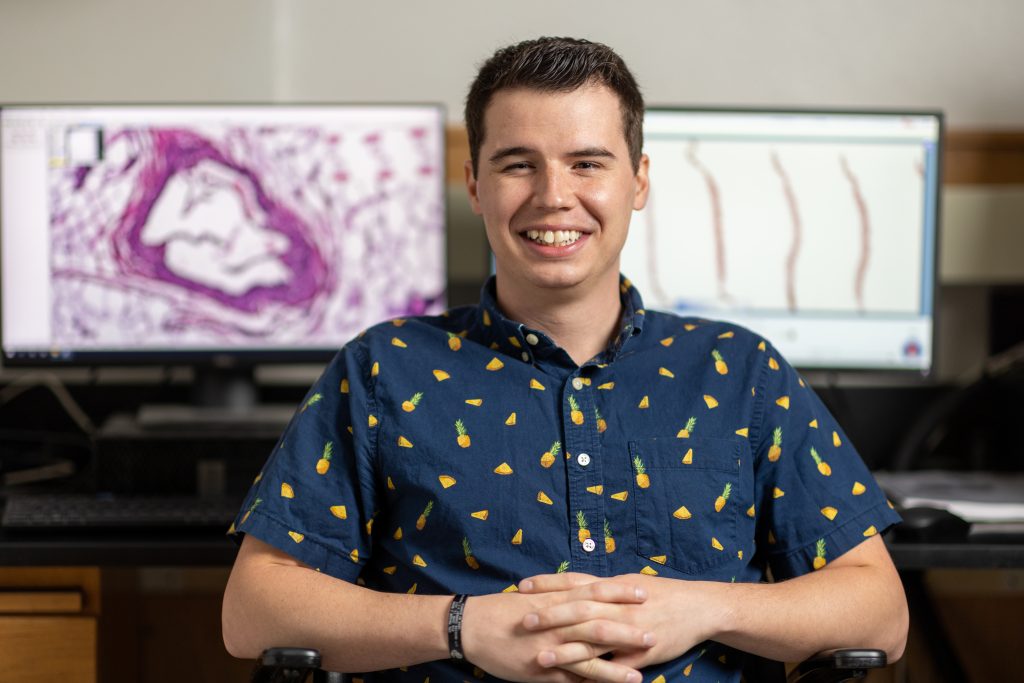
“For me, that was really meaningful because two highly impacted populations for depleted uranium are veterans of the military and the Navajo population. Part of my ancestry is Navajo, and I have family on the rez who are living through this uranium exposure. And then I have friends I deployed with who were around depleted uranium all the time because it’s not considered toxic by the Department of Defense.”
Allen’s research showed evidence that cell metabolism is drastically impaired in the presence of depleted uranium. A variety of adverse health effects have been associated with impaired metabolism, including diabetes, cancer, and autoimmune disorders. Allen’s research results are a step toward understanding the impact of uranium on living organisms.
More than 500 abandoned uranium mines on the Navajo Reservation have contaminated the soil and water, creating a health risk for people who live and work in the area. Many veterans have also been exposed to high levels of depleted uranium used in military vehicles and weaponry.
What comes next
Since graduating with his master’s in 2020, Allen has served as the manager of the Imaging and Histology Core Facility (IHCF) on campus. It’s a job he loves.
Running the lab allows him to keep doing research and solving puzzles. The lab hosts highly specialized instrumentation and equipment for use by campus researchers and industry partners.
“It’s so interdisciplinary; I get to learn about a ton of projects going on at NAU and all different kinds of science. It’s a lot of fun.”
He’s also teaching. In the fall 2022 semester, Allen is leading two courses that speak to his passions and priorities. In Electron Microscopy, he’s training graduate students to use highly specialized instrumentation at the IHCF lab; in Veteran Integration Engagement, for freshman student-veterans, he’s combining community engagement with writing and critical thinking skills.
And while medical school still hasn’t totally fallen from his radar, for now, Allen is enjoying the fruit of that serendipitous 2014 Google search.

